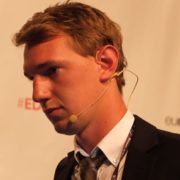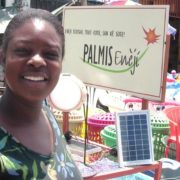A social enterprise to improve access to elec ...
Le Young Belgian engineer Ruben Bäumer leads the Sénérgie initiative, a social enterprise that aims at improving access to electricity in Senegal by selling solar kits. He présents this project and analyses its potential and challenges.
What was your initial objective when you launched Sénérgie ?
I wanted to work in solidarity and development, by doing something concrete in the field in my sector, engineering. We started with a social enterprise in Senegal, selling small solar panels designed in Germany by Fosera and manufactured in Thailand. These high-quality kits, which we sell at around EUR 250, are equipped with four LED lamps, a mobile phone charger and a radio. We have established a partnership with Caurie, a local microfinance institution, to allow the purchase of the product to be spread out over 18 months, with a 3-year guarantee for the solar kit, including the lithium battery.
How did you start ?
In 2014, we conducted a feasibility study in the field with 30 solar kits. We financed this pilot project with a crowdfunding campaign and thanks to support from Academics for Development, a student organization which started in Louvain and has expanded to other universities in Belgium. It aims to give students, young students like me, the opportunity of going to developing countries to get involved in social entrepreneurship and put their knowledge into practice with local entrepreneurs.
Why did you choose Senegal ?
In West Africa, the solar energy market is not as developed as in Eastern or Southern Africa. This is one of the reasons why we started in Senegal.


